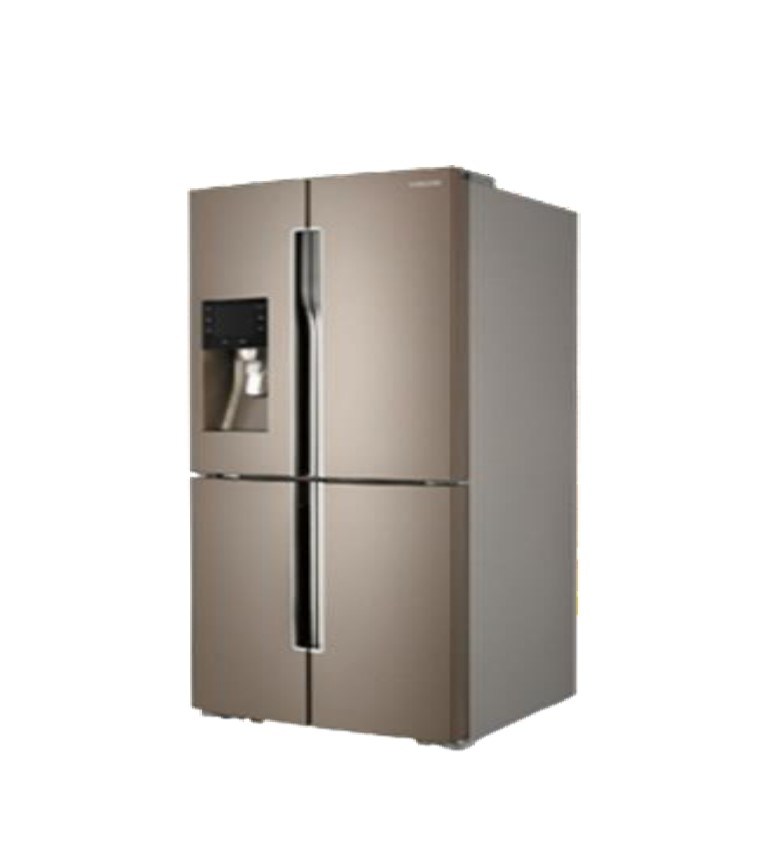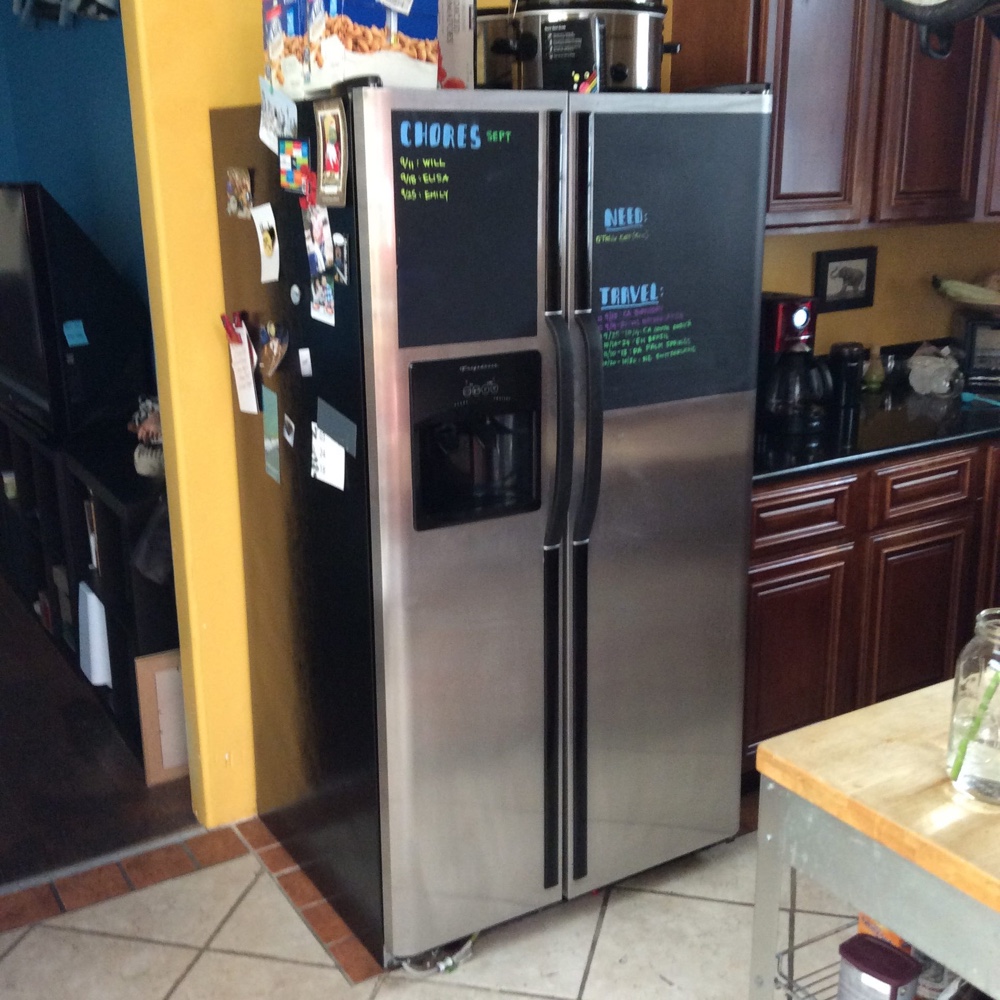Awesome Info About Can A 100w Inverter Run Fridge

Can A 100 Watt Solar Panel Run Refrigerator At Frank Duke Blog
The Tiny Inverter Versus The Mighty Fridge
1. Understanding the Players
So, you're wondering if that little 100w inverter can handle your fridge, huh? It's a classic David versus Goliath scenario, only instead of slingshots and stones, we've got watts and well, more watts. Let's break down why this is a common question and what to consider before plugging anything in.
First off, what is an inverter? Think of it as a translator. Your car battery (or solar panel setup) speaks in direct current (DC), but your fridge needs alternating current (AC). The inverter converts DC power into AC power, allowing you to run household appliances from a battery. Neat, right? But like any translator, it has its limits.
And then there's the fridge. Not all fridges are created equal. A mini-fridge for your dorm room is going to draw a lot less power than a massive, stainless-steel behemoth with ice and water dispensers. Size, efficiency, and even age play a significant role in how much electricity your refrigerator demands.
Therefore, before we even dive into the numbers, the types of refrigerator needs to be known. Some fridge are just too big to be handled by a 100w inverter because of the enormous power it pulls.
2. Watt's Going On? (Power Consumption Explained)
Okay, let's get down to brass tacks. Your fridge has two power requirements: starting wattage and running wattage. The starting wattage is the surge of power it needs to kick the compressor into gear. This is always higher than the running wattage, which is what it draws to keep things cool once it's up and running.
That 100w inverter? It can continuously supply 100 watts. The catch is, it likely won't be able to handle that initial surge. Many refrigerators need a starting surge that's significantly higher than their running wattage. A small fridge might need 300 watts to start, while a larger one could easily require 600 watts or even more!
See the problem? A 100w inverter is just too weak to handle it. It is only able to continuously supply 100 watts of power while the refrigerators needs much more power to start.
This initial surge can be very damaging to the inverter. The surge may be too great for the inverter to handle and cause it to be destroyed. Therefore, it is not advisable to try starting a refrigerator using a 100w inverter.

How To Run A Fridge On Solar Power At Kylelhutchisono Blog
The Cold, Hard Truth
3. The (Very) Slim Chance
Honestly? Probably not. The odds of a 100w inverter successfully running any refrigerator are very, very slim. Even the tiniest mini-fridges usually have a starting wattage that exceeds 100 watts.
Think of it like trying to start a car engine with a AAA battery. You might get a sputter, but you're not going anywhere. The same principle applies here. You might momentarily power on the fridge, but it won't be able to maintain operation.
You might find someone, somewhere, who claims they got it to work with a super-efficient, ultra-tiny fridge in ideal conditions. But that's the exception, not the rule. And even then, you're pushing the inverter to its absolute limit, which can shorten its lifespan dramatically.
If the inverter is pushed to its maximum, then its life span can be dramatically shortened. This is because it is strained from working too hard in powering the refrigerator.
4. When It Might (Theoretically) Work
Okay, let's entertain the extremely unlikely scenario where it might work. First, you'd need a super small, super efficient mini-fridge. Think dorm-room sized, energy-star certified, and practically brand new. Then, you'd have to be in a situation where the fridge is already cold (i.e., not starting from room temperature). This reduces the initial surge needed.
Second, your 100w inverter would need to be top-of-the-line, able to handle peak surges slightly above its rated capacity (though this is risky). And even then, you'd be walking a very thin line, risking damage to both the inverter and the fridge.
Third, the fridge must have a low starting surge. Fridges of this type are very rare. If the starting surge is low, then there is a possibility that it would work. However, this is very rare.
Even in the best case scenario, if the fridge will be powered, then it might only be for a short while before the refrigerator runs out of juice. This is because the inverter does not have the capacity to maintain the cooling of the fridge.

100W Inverter Compressor Driver Board For Refrigerator
Safety First
5. The Risks of Overloading
The biggest reason to avoid trying to run a fridge with a 100w inverter is safety. Overloading an inverter can lead to several problems.
First, it can damage the inverter itself. You might burn out the circuitry, rendering it useless. Second, it can damage the fridge. Repeatedly trying to start a fridge with insufficient power can stress its components and shorten its lifespan.
Third, and most seriously, it can create a fire hazard. Overheated inverters can spark and ignite nearby materials. It's simply not worth the risk to save a few bucks or avoid buying a more powerful inverter.
Always choose an inverter with a wattage rating significantly higher than the starting wattage of your appliance. It's better to have too much power than not enough.
6. What To Do Instead
If you need to run a fridge off-grid or in a situation where you only have battery power, invest in a more powerful inverter. A 500w or 1000w inverter is a much safer and more reliable option for most refrigerators. Consider the peak wattage of all appliances you intend to power and select an inverter accordingly.
Alternatively, if you only need to keep a few items cold, consider a 12V cooler designed specifically for car use. These coolers are much more efficient and draw far less power than a traditional fridge.
Also, consider using gas-powered fridge if the place will be used is a campsite or area where there are no electricity source. These fridges are also a better solution than using a 100w inverter.
Lastly, consider the type of fridge needed. Is it for camping, work, or for home use? This will help determine the best course of action in choosing the correct inverter and fridge.

Alternatives and Smart Power Solutions
7. Exploring Efficient Cooling Options
Let's talk about some smarter ways to keep things cold without relying on an undersized inverter. As we've established, trying to force a 100w inverter to run a fridge is a recipe for disappointment (and potentially disaster). So, what are our alternatives?
One excellent option is a 12V portable fridge. These coolers are specifically designed to run off a car battery or a portable power station. They use significantly less power than a traditional fridge and are perfect for camping, road trips, or keeping drinks cold in your office.
Another option is to invest in a high-efficiency refrigerator. Look for models with an Energy Star rating, which indicates that they use less energy than standard refrigerators. While even these might be too much for a 100w inverter, they'll still save you money on your electricity bill in the long run and be easier to power with a larger inverter.
Finally, if you're setting up an off-grid system, consider a propane refrigerator. These refrigerators run on propane gas and don't require electricity at all. They're a popular choice for cabins, RVs, and other off-grid applications.
8. Sizing Up Your Power Needs
Before you buy any inverter, it's crucial to accurately assess your power needs. Make a list of all the appliances you want to run, and note their starting and running wattage. Remember, the starting wattage is the key number to consider when choosing an inverter.
Add up the starting wattage of all the appliances you might use simultaneously. Then, choose an inverter with a wattage rating that's at least 20% higher than that number. This will give you some headroom and prevent you from overloading the inverter.
Also, remember to factor in the efficiency of the inverter. Inverters aren't 100% efficient; some power is lost in the conversion process. A good rule of thumb is to assume an efficiency of around 85%. This means that a 1000w inverter will only actually deliver about 850 watts of usable power.
By carefully calculating your power needs and choosing the right inverter, you can ensure that you have reliable power for all your appliances, without risking damage to your equipment or creating a safety hazard.

What Household Devices Will The 100W DIY Solar Kit Run Sunboxlabs
Frequently Asked Questions (FAQ)
9. Quick Answers to Common Questions
Got more questions? We've got answers! Here are some frequently asked questions about inverters and refrigerators.
Q: What happens if I try to run a fridge with an inverter that's too small?
A: The inverter will likely shut down or trip a breaker. You could also damage the inverter or the fridge. It's not worth the risk!
Q: Can I use a car battery to power an inverter and run a fridge?
A: Yes, you can, but a car battery is designed to deliver high current for short periods, not sustained power. You'll quickly drain the battery. Deep-cycle batteries are better suited for this purpose.
Q: Are all inverters the same?
A: Nope! There are different types of inverters (modified sine wave and pure sine wave), and they have different power ratings. Pure sine wave inverters are generally better for sensitive electronics like refrigerators.
Q: Where can I find the wattage information for my refrigerator?
A: Look for a sticker on the back or inside the fridge. It will list the voltage, amperage, and wattage. You can also find this information in the owner's manual.
